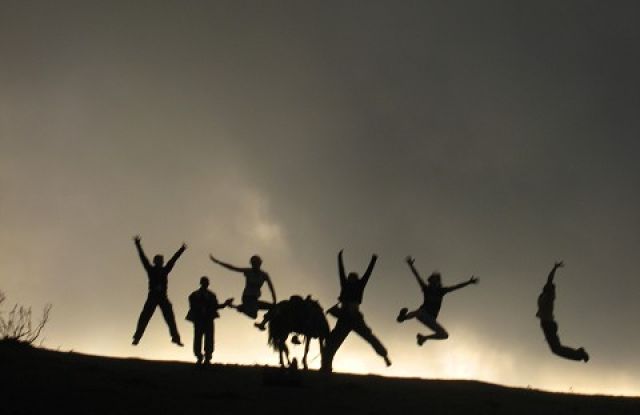

Why we have to take risks to grow (part 2)
Seeing life with the eyes of faith requires risk taking and
trust. As Jesus and his disciples would
encounter needy people, Jesus kept one eye on his disciples, looking to use each
situation as a coaching opportunity. In
the book of Matthew, this scenario repeats itself over a dozen times. A Centurion asks for healing on his servant’s
behalf. Before he heals the servant,
Jesus, much like a medical professor commenting on a patient to a group of
interns, tells his disciples, “I have not found anyone in Israel with such great faith.”
A few verses later when the disciples are frightened by a
storm, Jesus the coach rebukes them, “You of little faith.”
Matthew 9 describes Jesus going from village to village
meeting felt needs. His usual response
to a request for healing is to assess the person’s faith level. In chapter 16, Jesus debriefs the feeding of
the two different crowds of 4000 and 5000.
The disciples are lost in the weeds, failing to perceive the spiritual
reality before them. Coach Jesus blows his whistle saying, “You of little
faith.”
In the next chapter, Jesus’ frustration with his disciples’
inability to grasp this key concept begins to show when they blow a deliverance
opportunity. His response: “Oh
unbelieving and perverse generation…How long shall I put up with you?”
In the usual coach’s debrief that follows, the disciples
want to know where they messed up.
Jesus’ response is predictable given the skill he is trying to develop. “Because you have so little faith.”
Jesus wants to drive the same point home with his modern-day
disciples. Spiritual reality is not
discerned with physical eyes, but with the eyes of faith. He continues to look for those followers of
his who don’t live their lives responding to surface issues, but who
continually ask, “What is God doing in this situation?”
Such people might seem to be risk takers as they steer a
course based on a different set of coordinates than those around them. Their values are different, their objectives
are different, and their motives are different.
It’s not that they are risk takers, it’s just that they are more
interested in pleasing God than man.
They have learned the truth of Hebrews11:6, “And without faith it is
impossible to please God.” They have
heard Jesus’ coaching and are committed to please him. They want to learn what it is to walk by
faith.
Thus when the businessman perceives the Holy Spirit working
in a customer’s life and asks that customer if there’s a particular need he can
be praying about, to the world it seems like a risk, but to the businessman it
is seeing the situation with spiritual eyes.
Or when the student foregoes a summer job to participate on
a mission trip to Bolivia,
it may seem like foolishness to friends.
But to the student who has prayed extensively about it, the real risk
may be to disobey God in the matter.
Viewed from this perspective, steering their life course according to
God’s priorities and His direction is the least risky of all options.
Too many parents, like the disciples after the feeding of the 5000, are just
looking at the surface of things. They spend hours and hours investing in their
children’s soccer careers. They obsess over their children’s intellectual
development. They discuss sports, entertainment and peripheral issues, all the
while failing to help their children see reality with the eyes of faith. They
miss one of Jesus’ most foundational coaching points.
How can we claim to be his disciples if we never take the time to grow in
this key area? If we willfully refuse to learn to see the world as he sees it,
we take a real risk- we risk God’s wrath. James 4:14 says, “Don’t you know that
friendship with the world is hatred toward God? Anyone who chooses to be a
friend of the world becomes an enemy of God.”
There are two ways of looking at life.
You can use the world’s values and your own five senses, or you can
embrace the only safe way to grow in godliness – taking the narrow road that
puts your comfort at risk.



Leave a Reply